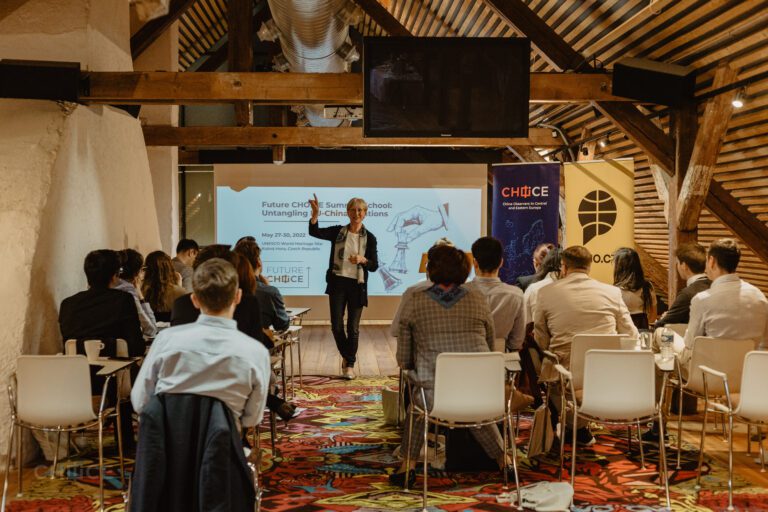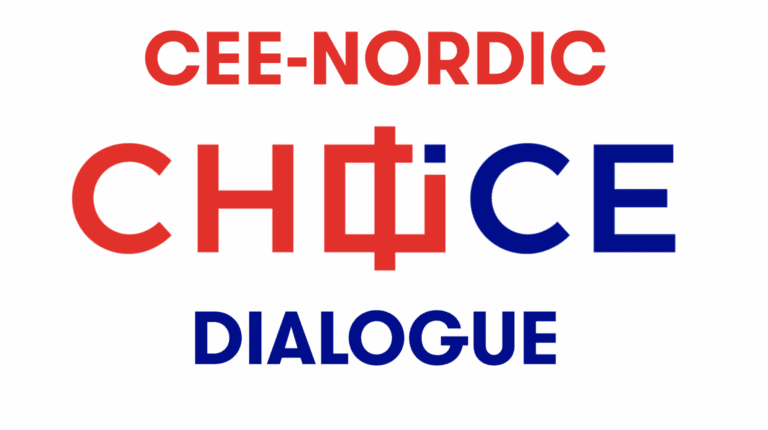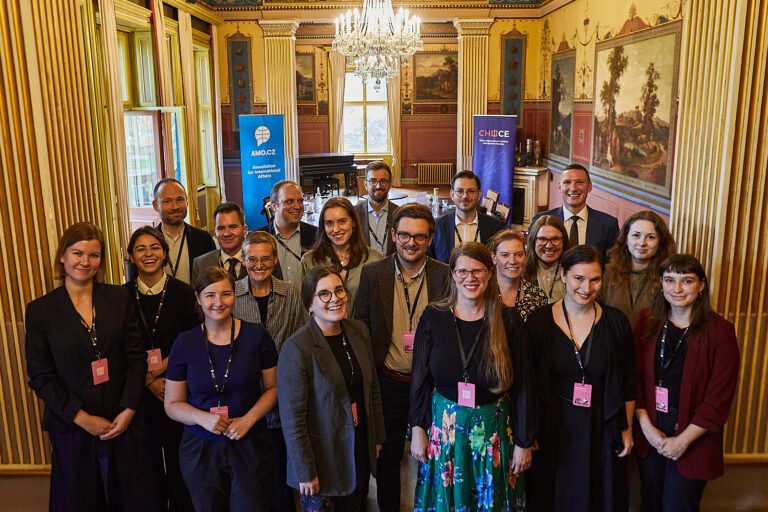European Knowledge Pool – Is It Leaking?
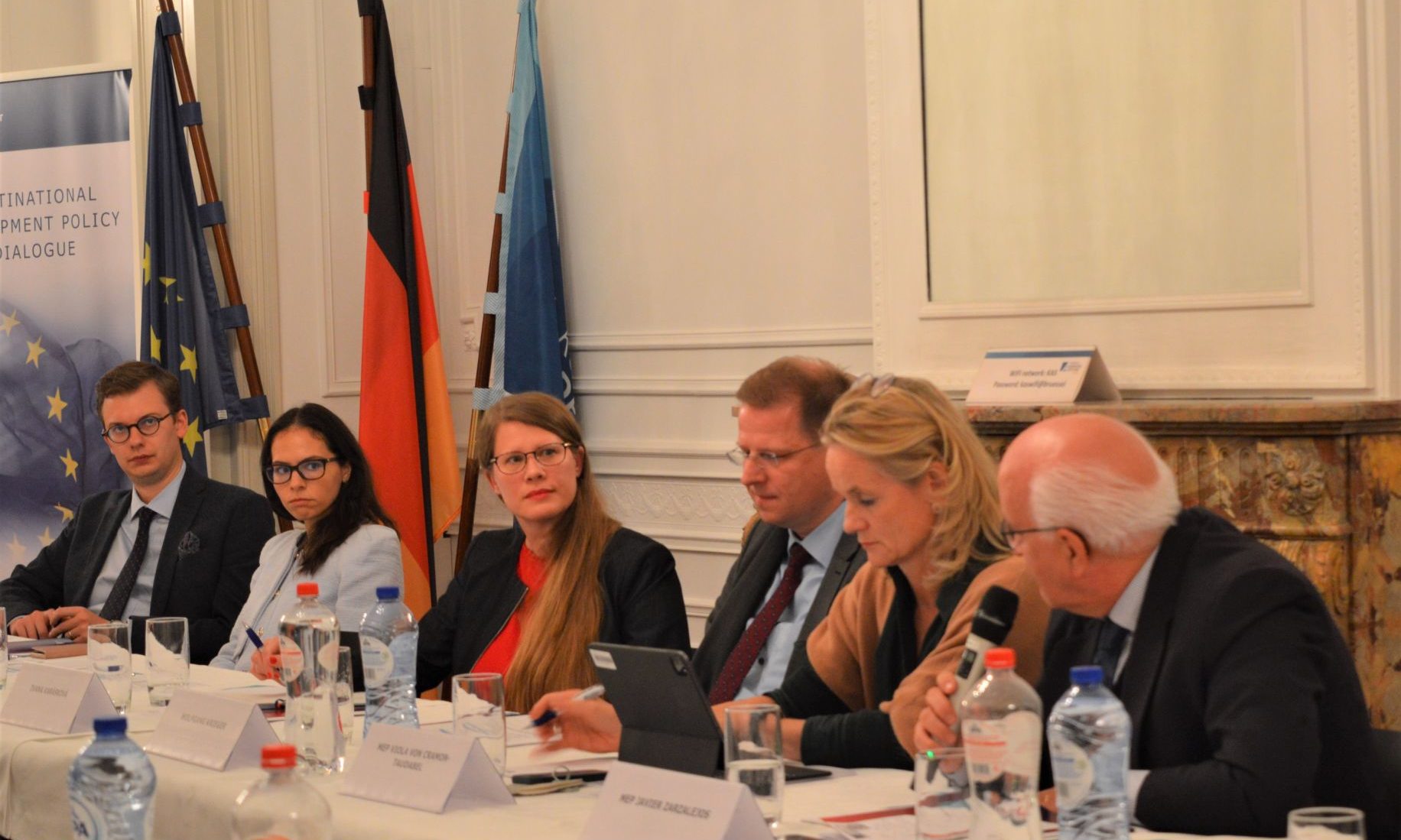
China Observers in Central and Eastern Europe (CHOICE) and Konrad Adenauer Stiftung Multinational Development Policy Dialogue (MDPD) organized a closed-door Chatham House rules roundtable discussion titled “European knowledge pool – is it leaking?” on September 26, 2022 in Brussels.
At the beginning of the event, Dr. Ivana Karásková presented the main results of a recent study by the Association for International Affairs titled “How to Do Trusted Research: China-Specific Guidelines for European Stakeholders”, in which the authors, using a unique research methodology, examine the scope of scientific cooperation with China in three Central European countries (Austria, Czech Republic and Slovakia) and provide timely recommendations to the European stakeholders.
The presentation was followed by a discussion with members of the European Parliament, experts from European institutions, academia and industry representatives. MEPs Viola von Cramon-Taubabel, Vice-Chair of the Delegation to the EU-Ukraine Parliamentary Association Committee, and Francisco Javier Zarzalejos Nieto, Vice-Chair of the Special Committee on foreign interference in all democratic processes in the European Union provided their insightful contributions. The panel also benefited from the experience of Wolfgang Krieger from BDI – Bundesverband der Deutschen Industrie e.V. The event was moderated by Tudor Petru Fabian, Policy Advisor at the European Parliament and International Trade Coordinator at SME Europe.
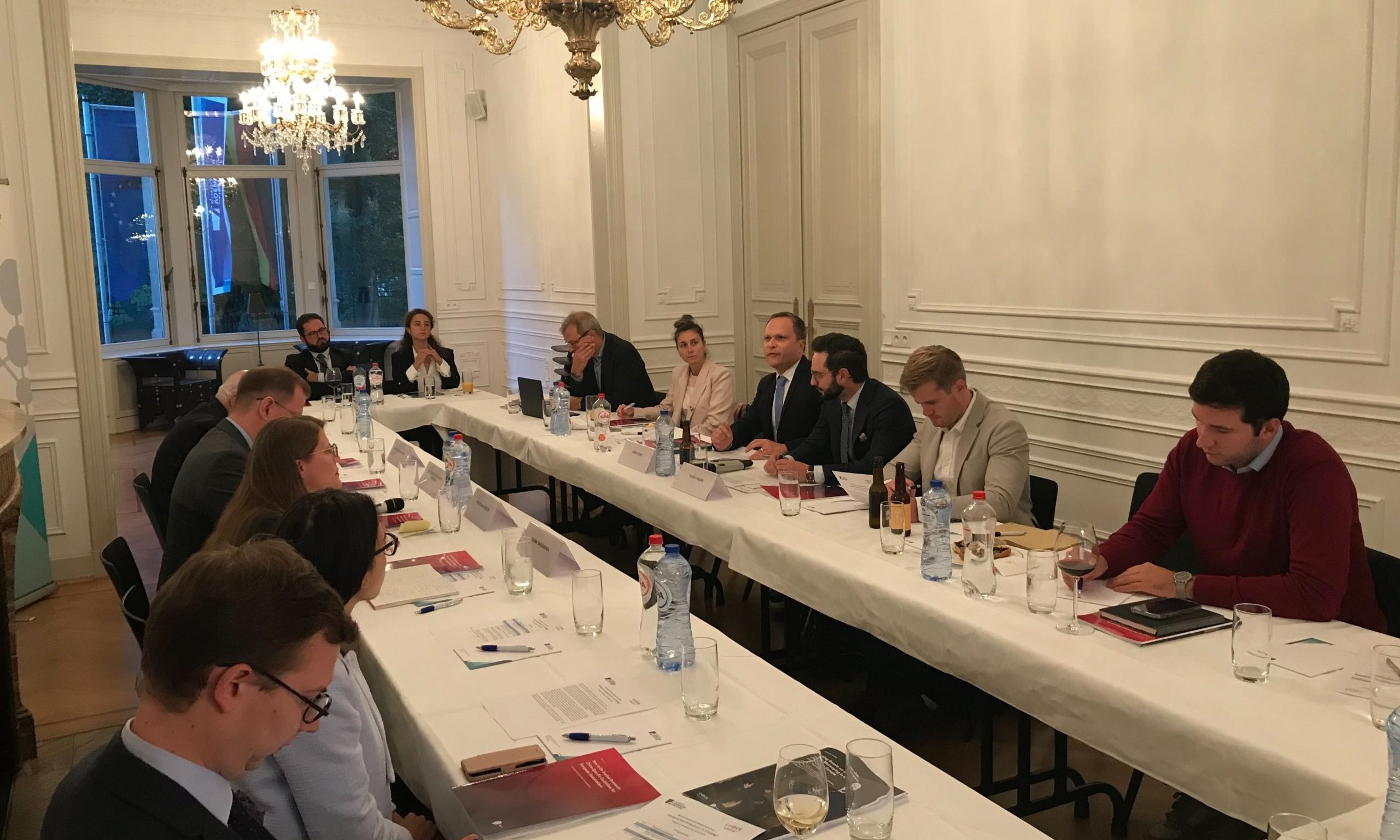
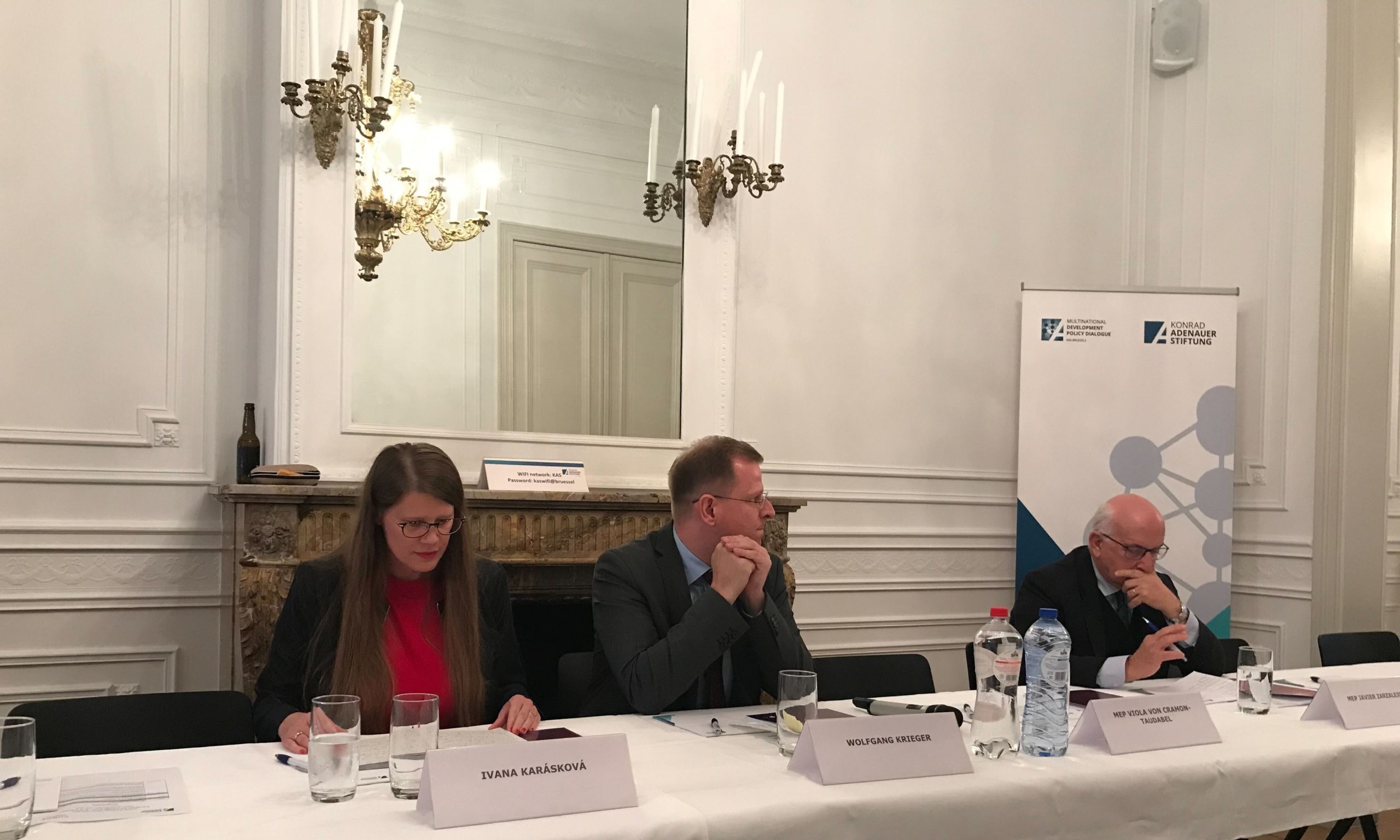
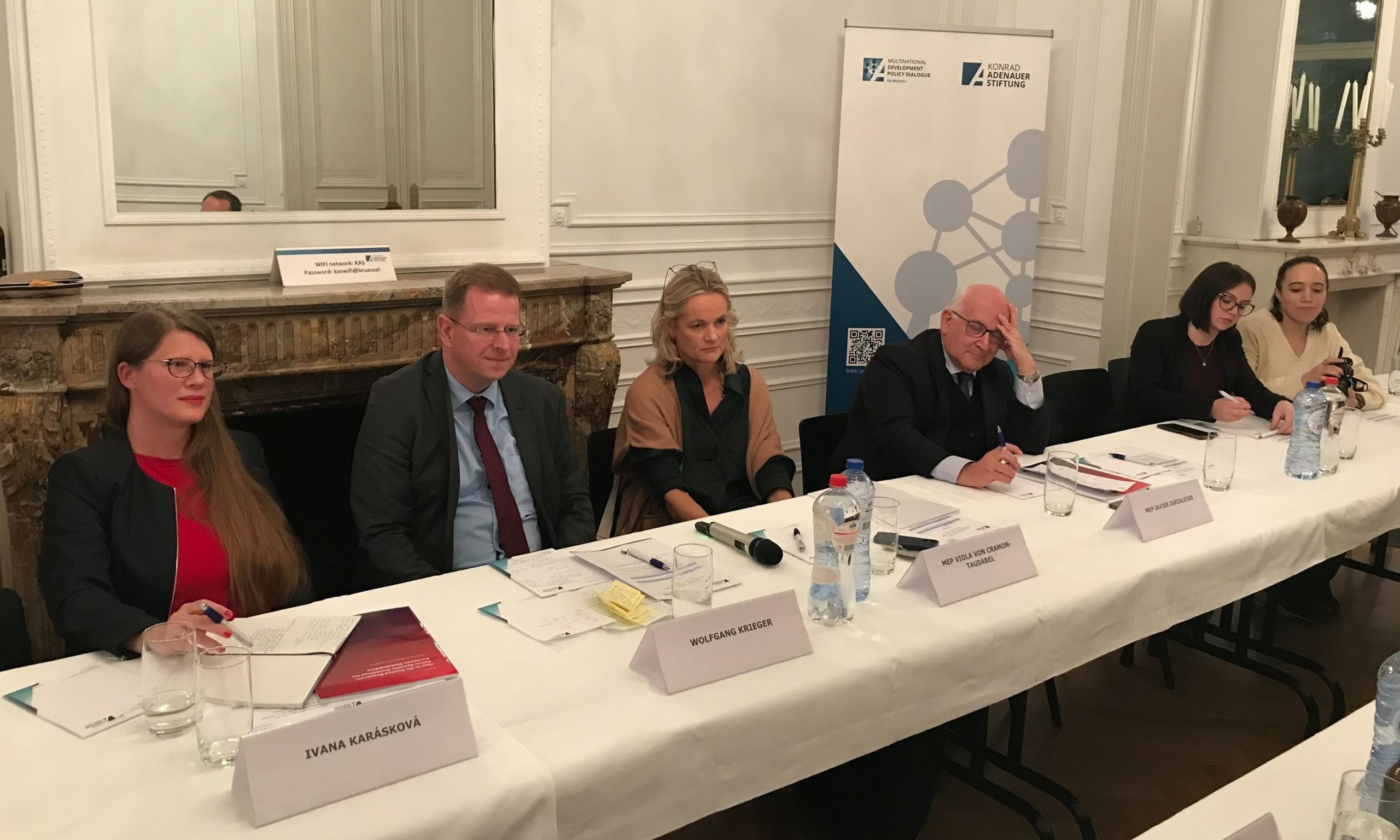
The discussion focused on the state of knowledge security in Europe and underlined the need to raise awareness about foreign interference among European stakeholders. Attending experts agreed that research is becoming increasingly politicized and the assumption that “research is neutral” no longer applies. Foreign actors are not only drawn by research related to dual-use and military technologies but are also interested by research fields that are not traditionally perceived as vulnerable such as agriculture and medicine. Non-reciprocal scientific collaboration with China in these research areas can undermine the competitiveness of European actors.
The participants agreed that the current measures in place designed to mitigate China’s efforts to acquire foreign technology are not sufficient. A more holistic and EU-wide approach is needed to address the challenge of foreign interference. The EU and EU member states should play a more important role in raising awareness on the issue and provide concrete guidance to the European stakeholders. More specifically, higher education institutions and research centres should be encouraged to adopt internal guidelines to safeguard their research. However, the academic and research establishments should not be restricted in their choice of cooperation partners, and funding sources or burdened with red tape, the experts stressed.
You can read the full event report here.
Written by
CHOICE
CHOICE is a multinational consortium of experts providing informed analysis on the rising influence of the People’s Republic of China within the countries of Central and Eastern Europe (CEE).
